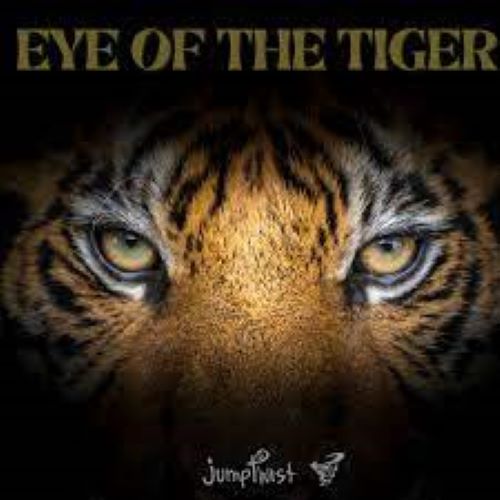A tune that defined a generation, powered countless workouts, and became a universal symbol of triumph, “Eye of the Tiger,” the timeless hit by the rock band Survivor, is embroiled in an ownership dispute. This anthem of resilience, known for its driving rhythm and indomitable spirit, has lately found itself at the center of a heated legal battle involving copyright infringement and royalties.
“Eye of the Tiger,” the chart-topping single from Survivor’s 1982 album of the same name, was co-written by the band’s founding members Frankie Sullivan and Jim Peterik. The song rocketed to popularity after featuring in the film “Rocky III,” becoming synonymous with the franchise’s protagonist Rocky Balboa, portrayed by Sylvester Stallone.
Sullivan and Peterik, the designated songwriters, have jointly held the copyright to the song for over four decades. However, a recent lawsuit filed by the heirs of the band’s late frontman, Dave Bickler, has thrown this established order into question.
The plaintiffs, Bickler’s wife and children, contend that he was a key contributor to the song’s creative process and, therefore, should be recognized as a co-author. They argue that while Sullivan and Peterik are credited as the songwriters, Bickler’s contribution to the song’s melodies and the iconic vocal performance that defined its identity cannot be overlooked.
“Dave was integral to ‘Eye of the Tiger,'” says the Bickler family’s lawyer. “He was much more than just a performer. His creative input was instrumental in crafting the song’s memorable melodies, and his iconic voice gave the song its identity. His contribution should be legally recognized, and his heirs deserve their fair share of the song’s earnings.”
This claim has been staunchly refuted by Sullivan and Peterik, who maintain that while Bickler’s vocal performance was indeed iconic, the songwriting process was solely their responsibility. They argue that crediting Bickler as a co-author would undermine the significant effort and creativity they poured into writing the song.
“Eye of the Tiger” is not just famous for its gritty guitar riffs and memorable lyrics, but also for the emotion it conveys. It has been a source of motivation for countless people, its spirit of resilience and perseverance resonating with fans worldwide. The legal wrangling over the song’s ownership threatens to cast a shadow over its legacy, turning an emblem of triumph into a symbol of discord.
Ownership disputes like this one aren’t uncommon in the music industry. The division of songwriting credits can often be a contentious issue, especially when a song achieves the level of success that “Eye of the Tiger” has. The question of who deserves credit for a song’s success – the writers who penned it or the performers who brought it to life – is one that continues to spark debate.
The outcome of the lawsuit could have far-reaching implications for the music industry. If Bickler’s heirs succeed in their claim, it could set a precedent for vocalists and other performers to seek songwriting credits for their creative contributions, potentially shaking up traditional understandings of authorship and copyright in music.
On the other hand, a win for Sullivan and Peterik could reaffirm the prevailing model, where the division of credit is typically determined by who wrote the melody and lyrics, rather than who performed the song. This could reinforce the boundary between songwriting and performance, suggesting that a memorable performance, no matter how influential, does not necessarily warrant a songwriting credit.
As the legal battle unfolds, fans of the song and industry observers alike will be watching closely. The ultimate resolution will not only determine the fate of one of the most iconic rock anthems of the 20th century but could also influence how songwriting credits are assigned and contested in the future.
In the meantime, “Eye of the Tiger” continues to inspire listeners worldwide, its powerful chords and stirring lyrics undiminished by the controversy. However the legal dispute pans out, the song’s message of resilience seems particularly fitting. Like the indomitable spirit it champions, “Eye of the Tiger” will endure, its legacy continuing to echo in the hearts of those it inspires, long after the court’s gavel has fallen.

Despite the ongoing litigation, Sullivan and Peterik have continued to publicly acknowledge Bickler’s contribution to the song’s success. They acknowledge that his distinctive vocal performance helped turn the song into the anthem it is today. However, they insist that the songwriting process was a separate endeavor entirely, one in which Bickler was not involved.
“Writing a song isn’t just about making the music and lyrics,” Peterik said in a recent statement. “It’s about creating the framework that allows the song to resonate with people, to evoke emotions. That’s what Frankie and I did with ‘Eye of the Tiger’, and while Dave’s contribution was invaluable, it’s essential to differentiate between the song’s creation and its performance.”
Legal experts following the case highlight the potential implications of the court’s ruling. “This lawsuit isn’t just about ‘Eye of the Tiger’,” explains entertainment lawyer Annette Simmons. “It’s about the broader issue of how we define authorship and value contributions in the music industry. It’s a complex issue with no easy answers, but it’s crucial for establishing fair compensation and recognition practices.”
The notion of what constitutes authorship in music is indeed complex and evolving. As the industry changes and the process of creating music becomes more collaborative, the lines that once clearly defined roles are blurring. In today’s music landscape, producers, performers, and even sound engineers can have significant creative input into a song, raising questions about how credit and royalties should be allocated.
An additional twist in this legal tale involves potential copyright infringement. The Bickler estate also alleges that Survivor’s music has been used without proper licensing in various commercial endeavors, leading to potential loss of income.
The court case has reignited debates about the Copyright Act and its interpretation. The Act defines authors as those who create a work, but it doesn’t provide explicit guidelines for determining authorship in collaborative works, like songs. This lack of clarity often leads to disagreements and legal disputes, like the one involving “Eye of the Tiger”.
While the legal battle over “Eye of the Tiger” may seem like a simple disagreement over credit and royalties, its implications are far-reaching. Its outcome could influence the future of the music industry and how it recognizes and values different kinds of creative contributions. It also underscores the need for clear, updated copyright laws that reflect the collaborative nature of music creation in the modern era.
As “Eye of the Tiger” continues to motivate and inspire listeners worldwide, the discord behind the scenes serves as a reminder of the often complicated business of music. As we anticipate the court’s verdict, we can only hope that, whatever the outcome, it will encourage fairer recognition and compensation for all those who contribute to the music we love.
Whatever the resolution, the spirit of the “Eye of the Tiger” endures – a testament to resilience and determination that resonates far beyond the song itself. The court case represents another challenge, another hurdle to overcome, a sentiment that echoes the very ethos of the song at its heart.


